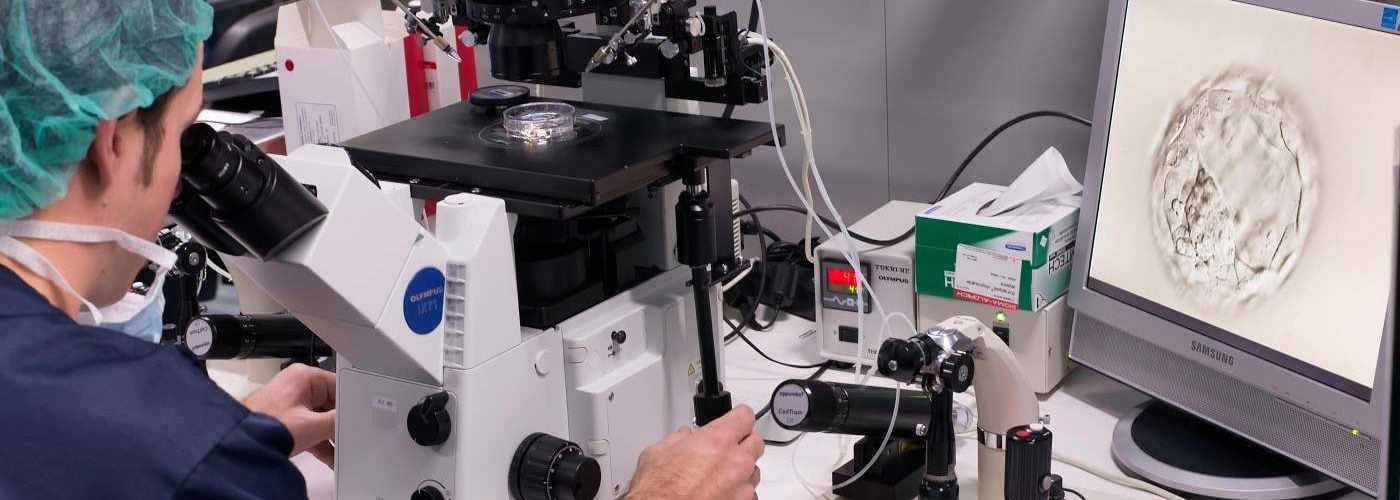
The 77th Congress of the American Society for Reproductive Medicine (ASRM) has been held recently. This is one of the world’s largest encounters on Assisted Reproduction. On this occasion, for the second year running, the event was held virtually to preserve the health of all attendees. Among them, the best researchers and specialists in the sector gathered to share the latest developments. Safety in Assisted Reproduction is, one more time, one of our priorities, as show the studies presented by IVI.
IVI at the 77th ASRM Congress
On this occasion, IVI presented nearly 70 papers. All of them aimed to offer our patients all the guarantees that are in our hands, in order to repay the trust they place in us.
“There are many lines of research that are part of our daily activity. We work always under the premise of offering the best results to our patients and making their experience as bearable as possible. Our priority is to ensure that they achieve their baby in the shortest time and with the best guarantees. That is why we take care of every step of the process. Our firm commitment to research and our participation in leading congresses such as this one help us to continue leading this constantly evolving field.” So said Dr. Nicolás Garrido, Director of the IVI Foundation.
PGT-A and the work of the embryologist: keys to treatment success
When an assisted reproduction process is undertaken, the role of the embryologist is key to its future success. Their criteria play a fundamental role in the selection of the best embryo that will later be transferred.
In this sense, to date, it has not yet been studied whether morphological embryo classification systems or other subjective strategies used by embryologists help in the selection of euploid embryos –those morphologically normal– with greater probability than aneuploid –those that present an imbalance in chromosome complement.
At IVI we are aware of this reality. This is why our researchers have analysed the preferential selection of euploid embryos via the morphological classification systems used in the laboratory.
Dr. Garrido explains this point. “Out of a total of 156 single embryo transfers (SET), 129 were euploid. They were selected by embryologists blinded to the result of the embryo biopsy and subsequent PGT-A (pre-implantation genetic testing performed on the embryo) to determine the embryo typology. This shows that embryologists have very high skills in selecting euploid embryos for the transfer to the maternal uterus, according to the morphological classification.”
Safety in Assisted Reproduction focused on chromosomal anomalies in embryos
In this same line, we presented a second paper at this edition of the ASRM, focused on chromosomal errors in human embryos. This will allow us to discover how these anomalies influence the interpretation of the results of PGT-A performed on the embryo.
“An initial euploid or aneuploid result is reconfirmed in the rest of the embryo in almost all cases. This demonstrates how meiotic errors –which take place during cell division– occur in almost the entire embryo. Thus, the observed discordance rate of 2% is consistent with the mosaic rate in the general population. The combination of a reliable analytical platform and new advances in understanding the biology of embryonic errors should boost confidence in PGT-A results”, added Dr. Garrido.
Is it safe to undergo reproductive treatment after COVID-19?
COVID-19 is still a highly topical issue. In its awareness of this, IVI presented a study on the subject at the 77th edition of the ASRM. Specifically, it deals with the results observed in patients who have turned to reproductive medicine once they have overcome the Coronavirus infection.
The conclusion of Dr. Nicolás Garrido is clear.“What is certain is that, in an infertile population, a recent history of COVID-19 diagnosis does not have a negative impact on pregnancy outcome compared to a control population. However, we need to expand the study to a larger sample. This helps us to reassure patients who are wondering about the safety of reproductive treatments regarding COVID-19. We urge them not to delay their processes once they have recovered from the disease”.





Comments are closed here.